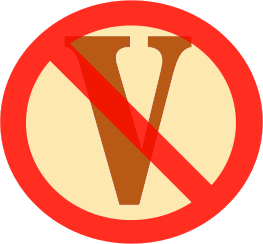THROAT HEALTH REMEDIES

Categories in Respiratory HealthNose and SinusesPhlegmThroatLungsEarsOverviewDon't know your body type? Take our free Dosha quiz!
TAKE THE QUIZ
48 likes  SAVE SYMPTOM SAVE SYMPTOMA sore throat may due to acid reflux, dryness, or 'sweet blood'. Sweet blood encourages proliferation of bacteria that irritate the throat.      (4.00 out of 5 stars) 2 ratings, 23 likes (4.00 out of 5 stars) 2 ratings, 23 likes SAVE SYMPTOM SAVE SYMPTOMA feeling of a lump in the throat is often described as if a golf ball or tennis ball is stuck near the throat chakra. A lump in the throat can be caused by anxiety, vagal nerve stimulation, swelling, irritation from acid reflux, or even a tumor. 18 likes  SAVE SYMPTOM SAVE SYMPTOMLaryngitis may follow an upper respiratory infection & swelling, excessive use of the voice, acid reflux, or other causes. 46 likes  SAVE SYMPTOM SAVE SYMPTOMA thick coating on the tongue is a sign of ama - toxins accumulating in the body. It may be a sign of thick blood and aggravated Kapha, or aggravated Vata with constipation. The coating is formed by action of bacteria on the tongue. The presence... 36 likes  SAVE SYMPTOM SAVE SYMPTOMSwollen lymph nodes in the neck are a sign of chronic sinus, ear or upper respiratory infection. Swollen lymph nodes are a sign of blood stagnation andmay indicate sweet, thick, Kapha blood. 34 likes  SAVE SYMPTOM SAVE SYMPTOMIrritation of the upper respiratory tract, as well as inhalation of dust could create the urge to cough. Oddly, when a person relaxes or breathes slowly it stimulates the vagus nerve, which could ellicit a cough. Stimulation of the ears sometimes leads... 28 likes  SAVE SYMPTOM SAVE SYMPTOMA hoarse voice could be a sign of acid reflux, smoking, stuffed nose, dry air, dry palate, overuse of the voice, and upper respiratory infection. The vagus nerve also affects the muscles and tension in the vocal chords. 32 likes  SAVE SYMPTOM SAVE SYMPTOMA cough may be caused by a respiratory infection (often viral but sometimes due to bacteria). Examples include the common cold (rhinovirus), rsv, and the flu. The cough may be wet (with mucus) or dry (without mucus). Coronovirus causes a dry... 32 likes  SAVE SYMPTOM SAVE SYMPTOMA dry cough is a cough where lung tissue is void of mucus. The sound of a dry cough is raspy. Irritation of the upper respiratory tract, as well as inhalation of dust could create the urge to cough. Oddly, when a person relaxes or breathes slowly it... 7 likes  SAVE SYMPTOM SAVE SYMPTOMCroup is breathing difficulty and a "barking" cough. Croup is due to swelling around the vocal cords. It is common in infants and children. Croup is often caused by viral infection, but may also be caused by bacteria, allergies, respiratory irritants,... RESPIRATORY HEALTH TIPS DISCLAIMER: The pathogenesis of each person's condition is unique, and so the diet must be fit to the individual and the unique root causes of the condition in your body. The information on this page is for educational purposes only and should not be used to treat a medical condition. It is not a substitute for medical care. Please check with your doctor before making any changes to your health and wellness routine. HOW AYURVEDA WORKSARE YOU WONDERING HOW AYURVEDA CAN HELP YOU?WHY IS AYURVEDA THE RIGHT SOLUTION?Ayurveda strengthens the body while opposing disorders. It takes a holistic, systemic approach that looks at the whole body. Ayurveda shows how to interpret signs and symptoms of imbalance, and how to address them using diet, lifestyle adjustments, and herbs. It shows a person how to optimize their health on a continual basis. You can't take the doctor home with you, but you can take Ayurveda home with you. Ayurveda is the most advanced and easy to use home system for self healing.HOW DOES AYURVEDA WORK?Ayurveda starts by identifying your body type, which identifies certain tendencies in your body to get sick (as well as identifying your strengths). It uses body type to determine the likely root causes of your disorders. Next, Ayurveda analyzes the nature of your disorder. It fits all your signs and symptoms into a pattern, expressed as a combination of biocharaceristics (gunas). For example, you may have a heat disorder, a cold disorder, or an oily disorder, etc. This simple categorical approach shows you how to correct systemic imbalances and strengthen your body as a whole.On Joyful Belly, we've created an extensive categorization of food so you can easily match food to your imbalanced biocharacteristics. By eating an optimal diet that balances your biocharacteristics, your whole body is strengthened and the conditions that created the disorder are removed. Once the root causes of the disease are removed, the disease lessens in strength or disappears altogether. Additional remedies - such as herbs and lifestyle practices - focused on the specific disorder, can greatly enhance your healing. GET STARTEDTo get started on your Ayurvedic journey, we first recommend that your find your body type by taking our free quiz. In Ayurveda, every solution is based on your unique body type, so by taking this quiz, you’ll get the best results. |
Join Joyful Belly.
Want our top Ayurvedic recipes and health tips?Subscribe to our free newsletter!













